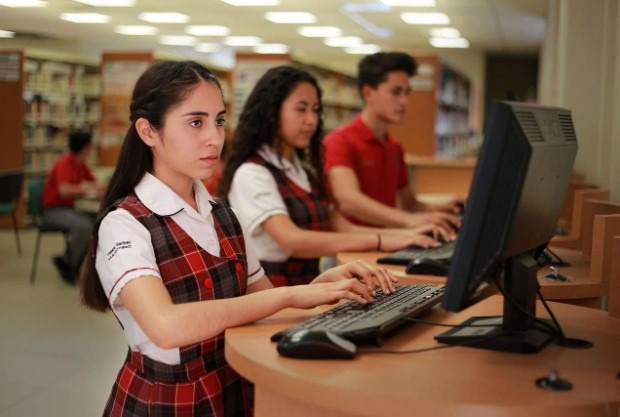In this digital age, not even a single person can be found without social media. Even elementary school students think they need to have social media accounts, and more often than not become addicted to Facebook, Instagram, or Youtube. Social media do have a lot of benefits, but it also comes with a plethora of problems. Especially, when children use social media, their academic and personal lives can be greatly harmed due to inappropriate use. It is a responsibility of teachers to think of the well-being of their students, and preventing student issues with social media should be a part of it.

Students can get into trouble with social media due to a lot of reasons. First of all, social media addiction can make them suffer while trying to make offline communications, or making friends. Social media is also a breeding ground for cyberbullying and harassment, and if someone gets exposed to such issues at an early age, it can make it really challenging for them to express themselves in the future. Last but not the least, in social media, young students might come across something inappropriate for their age, which will be really harmful for their development in character traits.
Young students spend the most amount of time in school apart from their homes. Just like their parents, their teachers should also take the social media problem very seriously. I would like to shed light on some of the strategies teachers can formulate to proactively deal with social media issues with their students.
By the way, speaking of teachers, if you are a teacher who is currently finding his/her job really tedious, you should consider reading this.
Developing a Culture of Awareness
As it is better to take preventive measures, rather than trying to solve a problem when it actually occurs, developing a culture of awareness goes a long way in dealing with social media issues with students. Teachers should proactively make their students aware of the risks of using social media. At the same time, students should be taught how to behave in the online sphere, and what sort of behavior falls under the category of harassment and cyberbullying. In addition, they should also be made aware of potential threats from strangers. If a student does actually use social media, they should be encouraged to add their family members, teachers, and school friends. This will help the teachers to keep track of the social media activities of their students, and notify them when a red flag arises.
Ensuring Parental Education
Teachers have to talk to the parents of their students about the potential threats of social media usage. Even if it sounds really unbelievable, there are lots of old school parents who don’t simply understand the risks of social media. Teachers can reach out to the school authority to arrange seminars for the parents to educate them about social media. In such seminars, the parents should be given cues on how to control social media consumption in their children. Remember, parents are the ones with whom children spend the most amount of time. Children also trust their parents more than anyone else in the world. When the parents are aware, it will make things a lot easier when it comes to keeping the students away from all the ills of social media.
Reporting System
Regardless of how many preventive protocols are ensured, there will be instances when students will find themselves in a difficult situation regarding social media. In many cases, some students don’t feel comfortable sharing such problems directly. To deal with situations like this, teachers can create a social media issue reporting system. If necessary, students should be able to seek help from their teacher keeping their identities anonymous. It will help catering to those students who are too afraid to complain about their bullies. Moreover, such a system will strengthen the bond between the teacher and the students, as the students will understand that the teacher is trying his best to cater to their needs. However, this system will create a unique problem, as times there will be false complaints, but it has to be dealt with regardless. The teachers should try to make the best use of their judgement to distinguish false complaints from the genuine ones. If necessary, proper investigation should be done.
Conclusion
While social media can create a lot of problems, and it is not actually possible to prevent all of them, these suggestions should be able to deal with the most threatening issues. Apart from following these tips, teachers should try to ensure a classroom environment where students feel free to share their experiences and problems with their teacher. The teacher has to be friendly so that the students can reach out to them when something bad happens.
I’m a 20-something stay-at-home mother and wife. I have an amazing husband, a beautiful daughter, two loving dogs, and a lazy cat. I wouldn’t change my life for anything! I love to read, listen to music, cook and blog!

Speak Your Mind